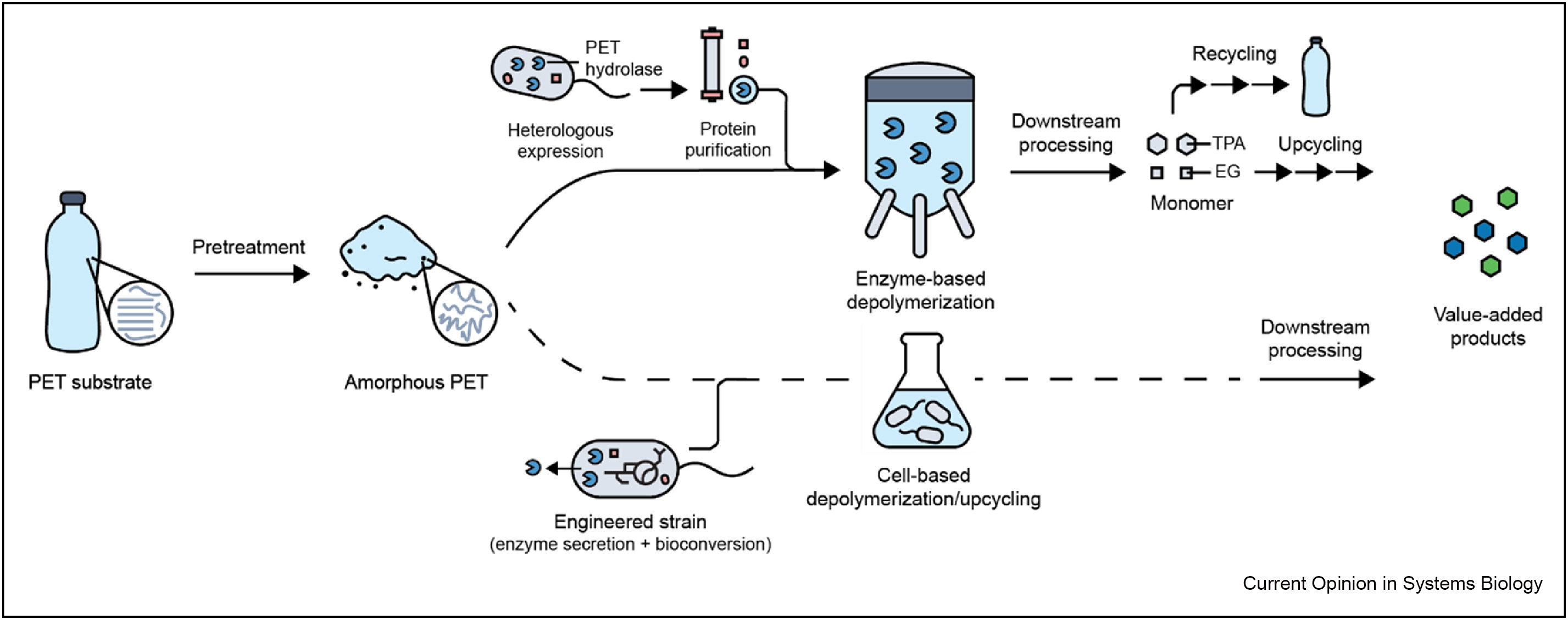Enzymes, auxiliaries and cells for the recycling and upcycling of polyethylene terephthalate (PET)
Published in Current Opinion in System Biology, 2024

Abstract
Biological recycling and valorization of plastics are promising approaches to solve global plastic waste accumulation. Out of diverse plastic materials, polyethylene terephthalate (PET) is one of the most abundant polymers with rapid development in both biodegradation and product upcycling. In this perspective, we review recent discoveries and engineering of PET-degrading enzymes together with plausible auxiliary pathways, and provide insights on how to construct better parts through systematic bioengineering (metagenome mining, protein design, directed evolution). Then, we discuss the potential of microbial-based PET degradation and upcycling in either a single host or consortia, as well as bottom-up and top-down methods of microbial consortia engineering using novel synthetic biology tools for enhanced PET circularization.
Recommended citation: Wongsatit T.+, Srimora T.+, Kiattisewee C.†, Uttamapinant C.† (2024). "Enzymes, auxiliaries and cells for the recycling and upcycling of polyethylene terephthalate (PET)." Current Opinion in System Biology. 38, 100515
